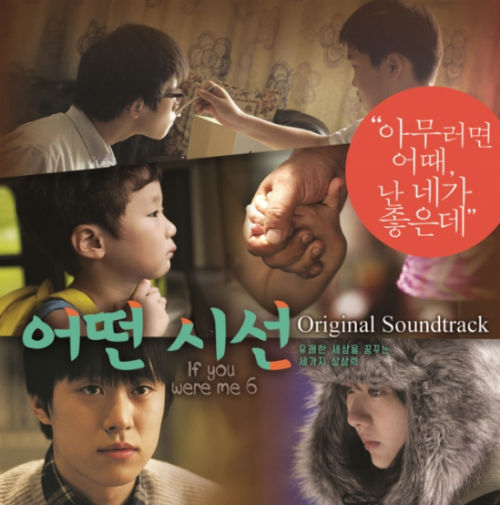
You can expect how the weather will be during winter. Cold and strong wind makes you want to get away from it. The thickly frozen river is not easily broken even though people step onto it. Sometimes people’s eyes are the same as the frozen river in winter when dealing with minorities. They are so ice cold and unbreakable to minorities such as the handicapped, the elderly and the conscientious objector. “If You Were Me 6” is an omnibus film series that talks about the human rights of the minorities in our society.
“Dear, Du-han” is the story about two boys. Du-han who suffers from brain lesions, is quite different from others. He has a close friend, Chul-woong who can understand him as a person with a handicap and tries to understand the words of Du-han. One day, after Du-han loses his money in a coin game at school, Chul-woong helps him so he could win the game next time. When Du-han feel sorry for his incapacity, Chul-woong firmly says to him, “Do not say sorry. It is not your fault.” Chul-woong has ulterior motives for being a nice friend to Du-han. Maybe we wonder why he is so kind to ‘the handicapped’ in the first place. Some say that human beings are just divided into two groups, normal and disabled people. But, there is a thick wall between them. Let me ask you a question. Are we really qualified to be called ‘normal’ just because we are nondisabled?
“Bong-goo Is on Delivery” is the most fun comic story among the three short films. Bong-goo is an old delivery man living on his part time work. One morning on the street, he happens upon a young boy who missed the shuttle bus. Bong-goo tries to take the little boy to the kindergarten and he holds the boy’s hand tight as if he would not lose the boy. However, Bong-goo is accused of kidnapping the child. Everyone Bong-goo meets that day gets angry or misunderstands him. A former kindergarten teacher talks bluntly and keeps aloof from him, his manager at work just shouts at him, a police officer does not listen carefully to his words and the boy’s mother even kicks Bong-goo. However, the young boy who spends the whole day with him without any doubt is the only one who gives a sweetest smile to Bong-goo. At last, his smile makes Bong-goo smile.
The last story “Ice River” is about the army and conscientious objection against military service. Sun-jae is a Jehovah’s Witness and is determined to follow his religious belief, ‘Do not hold a gun’. After his mother found a draft card, she worries that her beloved son would go to prison, not the army. The mother had divorced her husband who is also a Jehovah’s Witness, in order not to send her son to jail. That morning, Sun-jae goes to the frozen river. He tries to break the ice, but it is too thick to break. He reluctantly turns back to his home. In Korea, entering the military is an imperative duty of all male citizens. At the same time, they also have religious freedom. If some of them refuse military service, is there another choice? Or is it only go to the army or go to jail?
The cold frozen river looks hard to break. No matter how we try to break the ice river many times, it is not easily broken. You might break only the weak edges. But deep down in the river, the water is definitely flowing, though we cannot see it. When spring comes, the ice will slowly melt away like magic. We keep waiting for the day when the river flows softly and the warm wind blows. This film can be a ray of sunlight in cold winter.
By Son Hyun-jee, Guest Reporter

